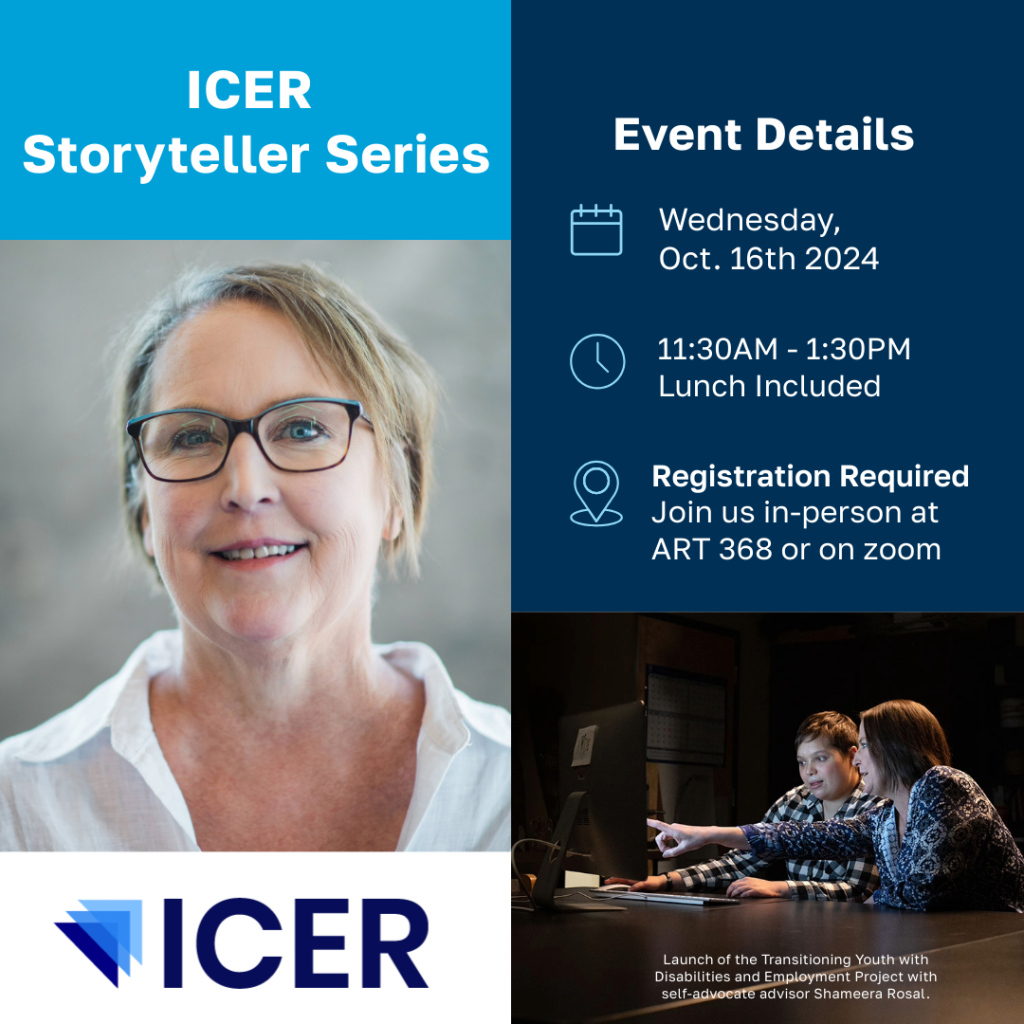Job Title: Community Engaged Research Podcaster and Video Editor
NB: This is an Undergraduate Research Assistant role (upper-level undergraduate preferred)
Application Deadline: Sept. 6, 2024
Interviews: Sept. 10 & 11, 2024
Job Description:
Institute for Community Engaged Research (ICER) unites researchers from a broad range of disciplinary backgrounds, including Anthropology, Gender Studies, Indigenous Studies, Economics, Education, Health Studies, Human Geography, Nursing, Social Work and Sociology.
Sharing a commitment to research that supports diversity, equity, and social justice, the Institute facilitates the participation of community members, organizations, students, and academics as co-researchers. ICER is a hub for building relationships, collaboration, and effective knowledge creation and exchange.
During the fall and winter of 2024-25, we will continue to meet our mandate and build on our previous knowledge mobilization activities and workshops by focusing on the knowledge mobilization activities of podcasting and video creation and sharing. We require the assistance of a podcaster and video editor.
ORGANIZATIONAL RELATIONSHIP
The Podcaster and Video Editor will receive direct supervision and mentorship from both the Coordinator and Director at the Institute and will also be supported by various members of ICER. The Co-supervisors will work closely with the Podcast and Video Editor to ensure they have the tools to be successful in their position. The supervisors will be responsible for ensuring that the Podcast and video editor can perform work both independently, and with the team. All decisions made by the Podcast and Video Editor will be reviewed by the supervisor to ensure a minimum standard is met. The Podcast and Video Editor will work with all the co-supervisors to create a podcast and video communications plan for the year. The Podcast and Video Editor will also engage with additional UBC staff, faculty and community partners to further enrich their experience of mentorship (specifically staff at UBC Okanagan Studios, the AMP Lap and the Library for technical support).
RESPONSIBILITIES:
- Co-create with supervisors a podcast and video plan. The plan will include a timeline with an agreed list of podcasts and videos that will showcase the Community Engaged Research work done by students, community partners and Institute affiliated researchers.
- Prepare background notes and storyboard ideas for potential podcast participants. This will include co-creating an interview guide with the co-supervisors.
- Coordinate with the supervisors and podcast / video participants around scheduling.
- Manage the recording, editing, and archiving of audio for podcasts.
- Manage the recording, editing and archiving of Zoom videos of presentations in ICER.
- Collaborate with the ICER Coordinator to update the website with podcast and video content.
- Collaborate with the co-supervisors around creating promotional material for the release of podcasts and video, including social media posts.
- Work with ICER press to obtain appropriate publishing licenses and agreements.
- Participate in various workshops and talks as appropriate and in deference to their schedule
- Lead or co-lead a workshop on podcasting.
- Additional Administrative tasks, including, but not limited to: event planning and support of ICER programming.
PREFERRED SKILLS:
- Comfortable with technology and /or willingness to learn
- Familiarity with Audacity, Adobe Premiere (or other editing programs)
- Adept with (or willing to learn) social media including Instagram, YouTube, podcasting platforms, and Facebook
- Familiarity with Microsoft Office programs (Word and Excel)
- Comfortable working in teams, asking questions and receiving constructive feedback, able to work independently
- Enjoys memes, dogs, cats and goldfish with equal passion
BENEFITS:
- Hourly wage at CA$ 20/hour.
- Flexible hours and work schedule. Anticipate 12 hrs/week for 13 weeks September to December 2024. Possibility of extension in 2nd semester.
- Opportunity to lead a workshop/brown bag lunch talk
- Develop and enhance technical communication, interpersonal, professional, and organizational skills.
- Gain experience in podcasting, interviewing, editing, and create podcasts and videos and maintain
- Improve logistical coordinating skills for a professional environment.
- Obtain experience working with various students, community partners and professors in a collaborative work setting.
- Gain personal and professional growth, and large network, and sense of community.
- Learn about the variety of Community Engaged Initiatives happening at ICER and at UBC Okanagan
- Meet and talk with graduate students about their work, and their graduate school experiences.
REPORTS TO:
Institute for Community Engaged Research Director and Coordinator. The student will receive ongoing training and support from the Director and Coordinator. The initial week will be spent orienting the student to the Institute, both physically, and its culture and history and planned activities for the year. Weeks two and three will focus on training and creating a work plan for the rest of the year. This will be a living document subject to change according to the needs of the student, and collaborators.
It is anticipated that podcast interviews will be done with the three graduate Award recipients about their research, with various students who are graduating from the CESCE theme, and visiting scholars, and other ICER members.
WORKING CONDITIONS:
This is a part-time position. The student will work in an office environment, with potential for hybrid opportunities.
To Apply:
Please send a cover letter and resume to: icer.ok@ubc.ca
In your cover letter, please include the following information:
- Experience with podcast or video editing
- Career aspirations and areas of study
- What interests you about working at the Institute for Community Engaged Research
- *If you have a sample of a podcast or video that you have edited, please include a link in your cover letter.



